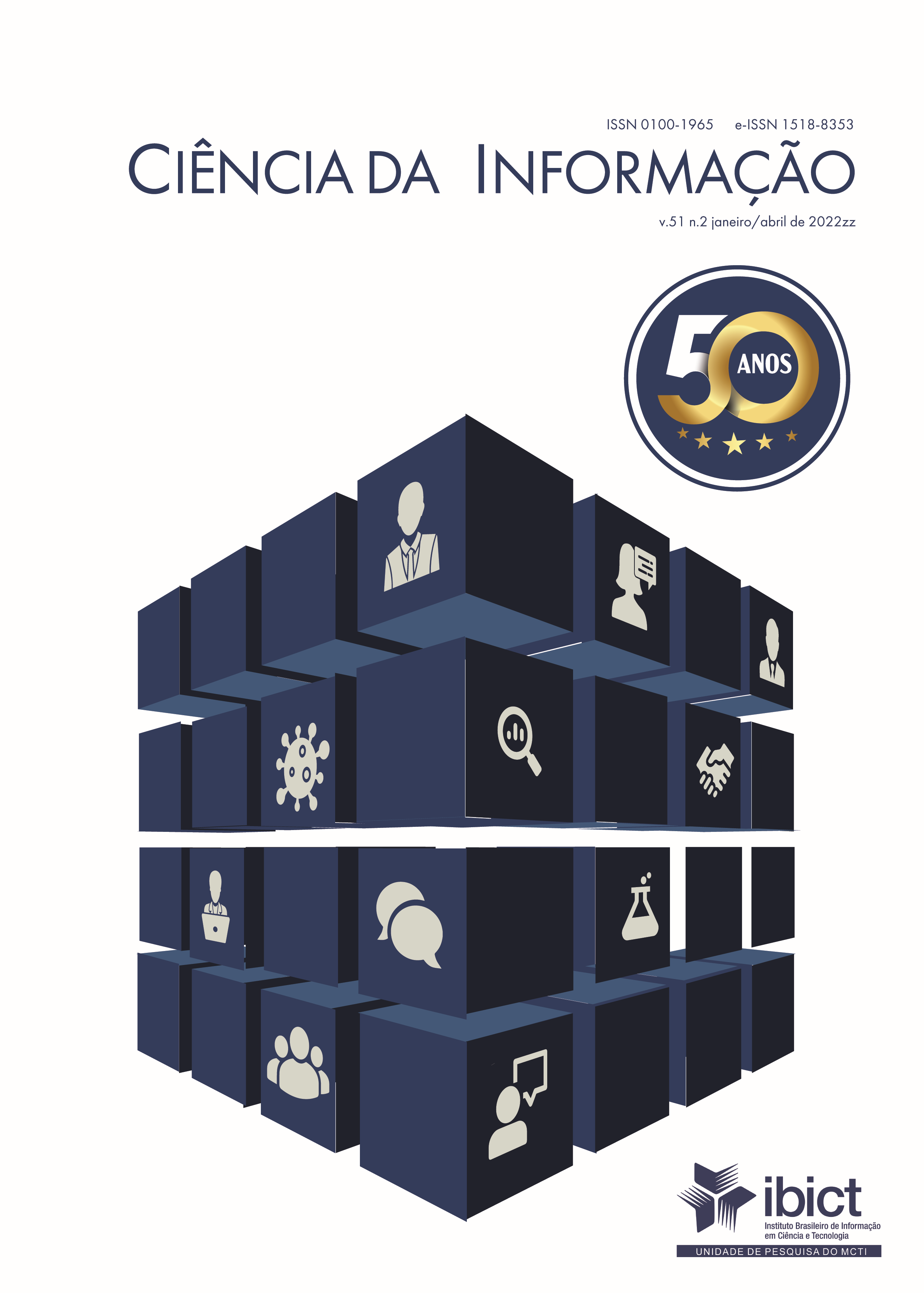Ley de Acceso a la Información en Brasil: lo que revelan los datos de implementación
DOI:
https://doi.org/10.18225/ci.inf.v51i3.5966Palabras clave:
Transparencia publica., Ley de Acceso a la Información., Teoria de la Desconfirmación de las Expectativas., Sistema de Acceso a la Información Publica.Resumen
Este artículo muestra los resultados de una investigación para evaluar el proceso de implementación de la Ley de Acceso a la Información en el Gobierno Federal de Brasil utilizando datos empíricos sobre el nivel de satisfacción de los usuarios publicados desde 2013 hasta 2020 por la Contraloría General de la República en su sistema informático disponible en Internet. El objetivo principal de la investigación fue contribuir a revivir este complejo tema para la democracia en un sentido de realidad, utilizando un doble eje metodológico: (i) análisis de una muestra empírica y significativa de datos recolectados del sistema con técnicas estadísticas, y (ii) evaluación lógica de los parámetros estadísticos resultantes con base en la Teoría de Desconfirmación de Expectativas. Los datos empíricos sobre el proceso operativo para implementar la ley revelaron, por un lado, que las agencias federales y las empresas estatales han evolucionado para mejorar el acceso a la información y, en la actualidad, el desempeño del Gobierno Federal de Brasil se encuentra en una posición relativamente buena entre los países desarrollados y en desarrollo en el mundo, con algunos órganos de gobierno logrando altos índices de acceso a la información otorgada a los ciudadanos, pero, por otro lado, también reveló que en algunas áreas de gobierno aún se necesita una amplia comunicación a los ciudadanos sobre el alcance de la ley. Otra conclusión importante es que un sistema informático adecuado para implementar el acceso a la información es un requisito sine qua non para un avance sostenido más allá de la aprobación de una Ley de Acceso a la Información.
Descargas
Descargas
Publicado
Número
Sección
Licencia
Derechos de autor 2022 Ethel Airton Capuano

Esta obra está bajo una licencia internacional Creative Commons Atribución-CompartirIgual 4.0.
- La publicación se reserva el direcho de realizar, en los originales, cambios de orden normativa, ortográfica y gramatical, para mantener la norma culta del idioma, respetando el estilo de los autores;
- Las pruebas finales no seran enviadas a los autores;
- Los trabajos publicados pasan a ser propriedad de la revista Ciência da Informação, siendo su reimpresión total o parcial, sujeta a autorización expresa de la dirección del IBICT;
- Debe ser consignada la fuente de publicação original;
- Són de exclusiva responsabilidad de los autores las opiniones emitidas en sus artículos;
- Cada autor recibirá dos ejemplares de la revista, caso esté disponible en el formato impreso.




























